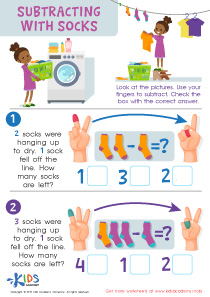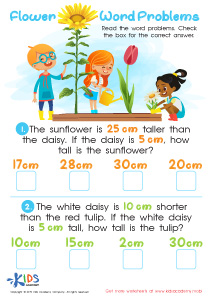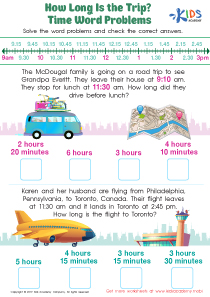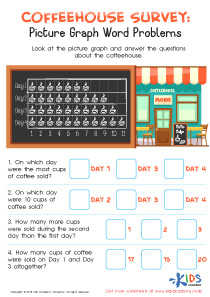Easy Two-step Word Problems Worksheets for Ages 3-7
5 filtered results
-
From - To
Introduce young learners to problem-solving with our “Easy Two-step Word Problems Worksheets for Ages 3-7”. These engaging worksheets are designed to build foundational math skills by guiding children through simple, relatable scenarios that require two steps to solve. Perfect for early learners, each problem blends basic addition and subtraction, providing a fun and interactive way to enhance critical thinking. Our colorful, kid-friendly worksheets ensure that math practice remains enjoyable, paving the way for future academic success. Ideal for parents and educators looking to add effective, easy-to-understand resources to their teaching repertoire. Explore today to support your child's learning journey!
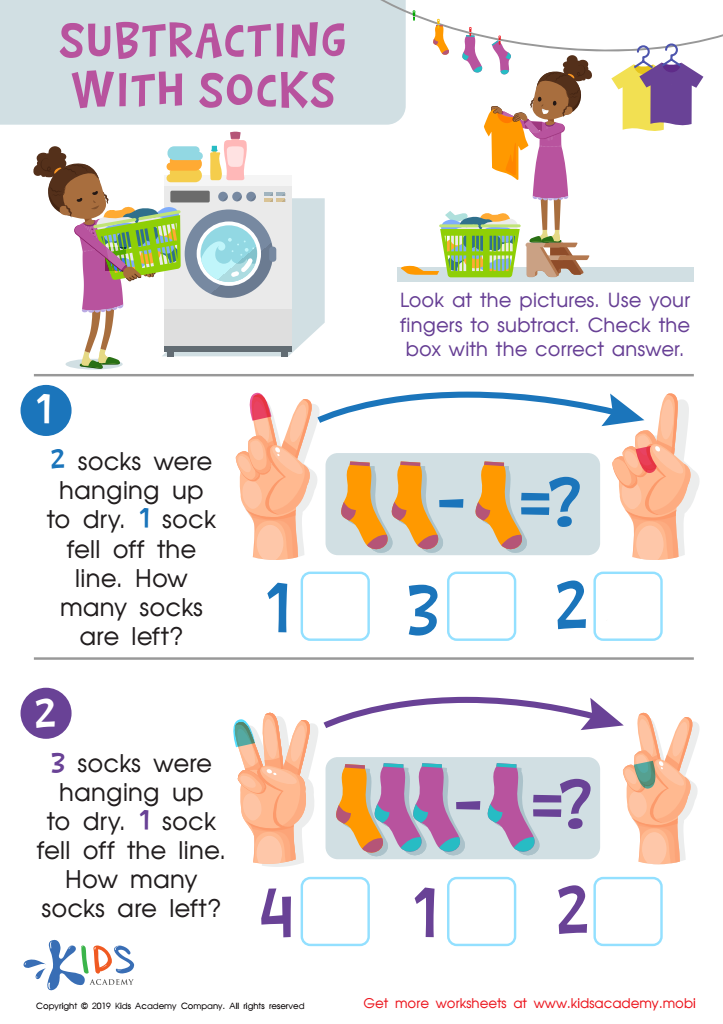

Subtracting Socks Worksheet


Counting Seedlings Worksheet
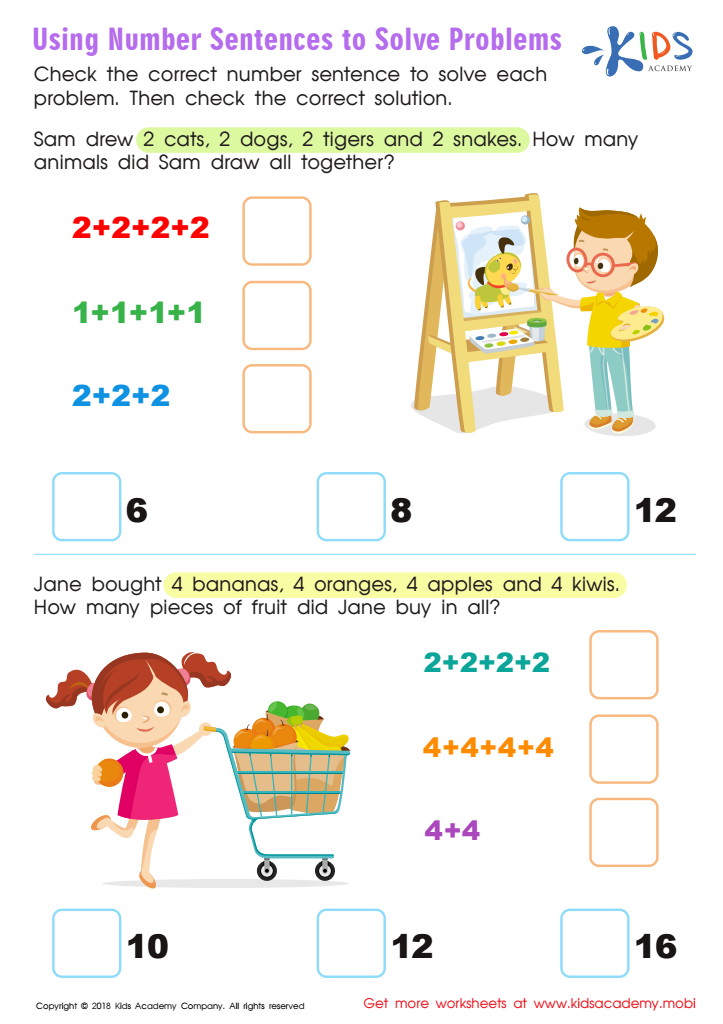

Using Number Sentences to Solve Problems Worksheet
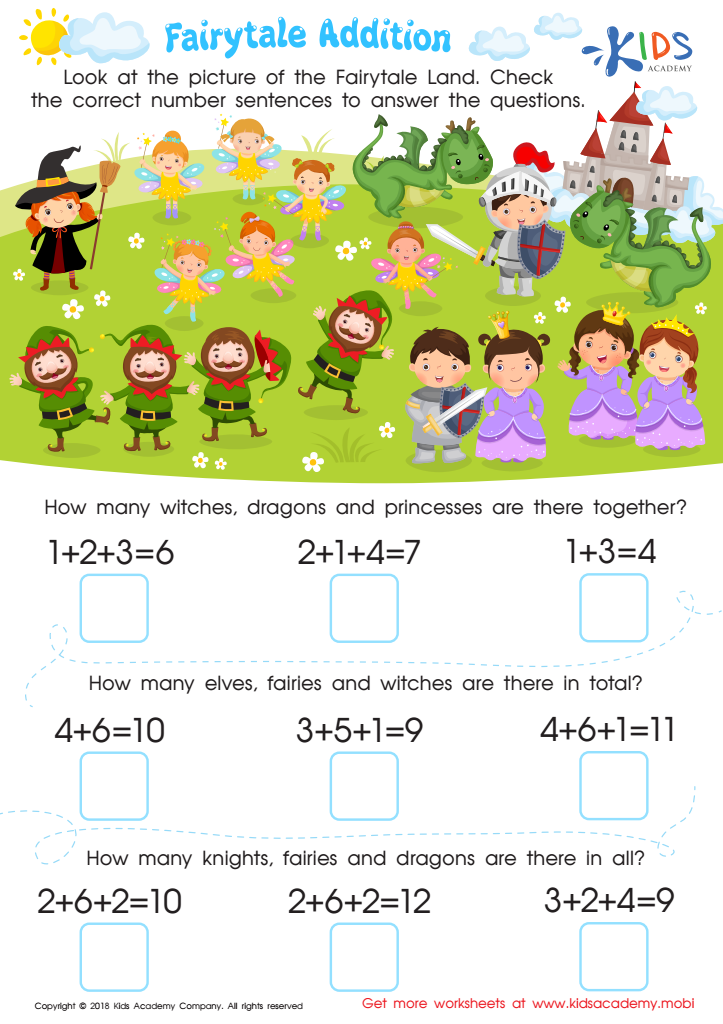

Fairytale Addition Worksheet
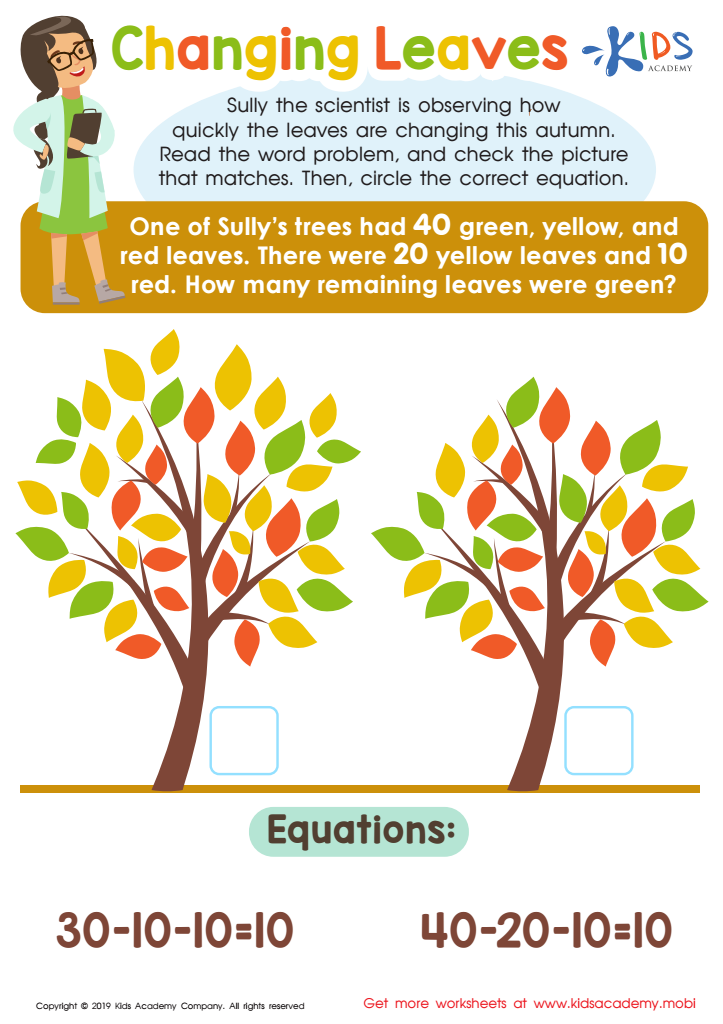

Changing Leaves Worksheet
Easy two-step word problems are crucial for children aged 3-7 as they lay the foundation for essential cognitive and academic skills. For parents and teachers, fostering an early proficiency in solving these problems encourages sharp analytical thinking and effective problem-solving abilities. At this formative age, children are highly adaptable and responsive to learning new concepts, making it an ideal period to introduce basic arithmetic in a contextual, relatable manner.
Parents and teachers should care because tackling two-step word problems enhances not just mathematical capabilities but also comprehension skills. Children learn to interpret language and numerical information, linking real-world scenarios to abstract math concepts. This interplay encourages stronger linguistic skills, improving overall literacy as they figure out what a word problem is asking them to do before applying the correct mathematical operations.
Additionally, early familiarity with these kinds of problems instills confidence and a positive attitude towards mathematics. Solving practical, relatable problems fosters a sense of achievement and instills a joy of learning, crucial for long-term academic motivation. In summary, easy two-step word problems serve as a pivotal educational tool, enhancing cognitive, linguistic, and emotional development during critical early growth stages.
 Assign to My Students
Assign to My Students






